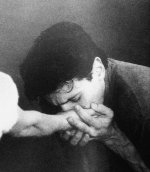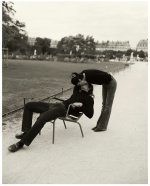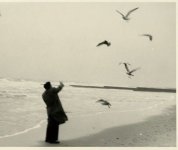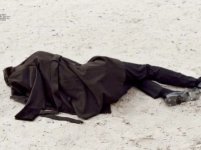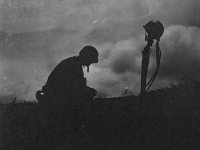Cena
Stranger to myself.
- Local time
- Today 9:40 PM
- Messages
- 1
- Age
- 18
They are here…
The pale light of the November sky shines over the trees of the surrounding town. The silence and tranquility of the small forest contrasts with the cruelty of war and the chaos of world events. Women are in the kitchens, covered in flour and cement, trying to hold the town together while the men are sent to the front. Children do not know laughter, they only know the crying and despair of their own mothers. The towns are partly destroyed, the air smells of burnt plaster and blood from the deaths of innocents. Fear, misery and frustration spread through the houses like a strong breeze... The breeze of a November morning.
She is a strong pacifist. She rebels against the government whenever she has the chance, she has so much passionate anger in her heart; she feels the flame in her chest growing bigger every day. She looks out into the streets, she sees the argent soldiers walking along the sidewalks and behind them the strong stench of hard alcohol wafts.How disgusting, she thinks.. But she has no time to think.. She has to go quickly to the main square, see who all returned from the war. They will need help, there is no one to take care of them.. And so she gets up, her long legs walking towards the fog... She doesn't know how far she is from the square, but in the background she hears women crying and blood on the ground. It must be close... She doesn't look ahead, she just watches the scene around her as wives and mothers throw themselves into the arms of their husbands. Some are missing their arms, legs, eyes.. It looks terrible, she feels melancholy in her chest... but from this observation she is suddenly interrupted by a feeling of the unexpected... Damn it, she thinks and looks up... She doesn't recognize him, but from the uniform and the dead look in his eyes she knows that he was a participant in the war..
The pale light of the November sky shines over the trees of the surrounding town. The silence and tranquility of the small forest contrasts with the cruelty of war and the chaos of world events. Women are in the kitchens, covered in flour and cement, trying to hold the town together while the men are sent to the front. Children do not know laughter, they only know the crying and despair of their own mothers. The towns are partly destroyed, the air smells of burnt plaster and blood from the deaths of innocents. Fear, misery and frustration spread through the houses like a strong breeze... The breeze of a November morning.
She is a strong pacifist. She rebels against the government whenever she has the chance, she has so much passionate anger in her heart; she feels the flame in her chest growing bigger every day. She looks out into the streets, she sees the argent soldiers walking along the sidewalks and behind them the strong stench of hard alcohol wafts.How disgusting, she thinks.. But she has no time to think.. She has to go quickly to the main square, see who all returned from the war. They will need help, there is no one to take care of them.. And so she gets up, her long legs walking towards the fog... She doesn't know how far she is from the square, but in the background she hears women crying and blood on the ground. It must be close... She doesn't look ahead, she just watches the scene around her as wives and mothers throw themselves into the arms of their husbands. Some are missing their arms, legs, eyes.. It looks terrible, she feels melancholy in her chest... but from this observation she is suddenly interrupted by a feeling of the unexpected... Damn it, she thinks and looks up... She doesn't recognize him, but from the uniform and the dead look in his eyes she knows that he was a participant in the war..


